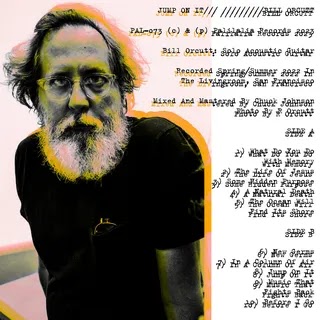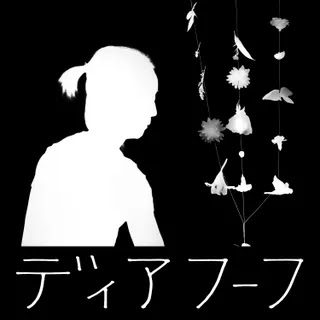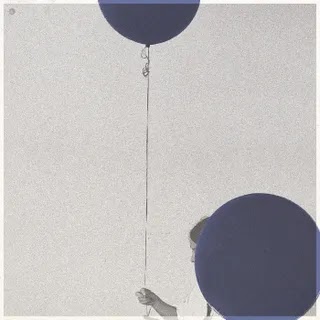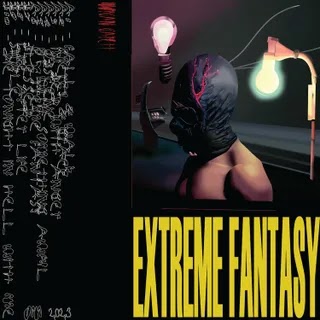The improvising guitarist’s first album for Drag City is restless and unsettling. Building on his idea of improvisation as a non-hierarchical value system, it is also a kind of protest record.
Beyond the principle of “first thought, best thought” comes no thought at all. This is the source of improvising guitarist Tashi Dorji’s playing: the realm of pure instinct, a zone of unpremeditated action in which the fingers outpace the brain. “I generally have a theme or form or simple idea and I work from there,” he told The Wire. But that foundation, he said, “changes the moment I start playing.” When Dorji picks up a guitar, it can sometimes feel like everything and nothing is happening at once: A player in the questing, occasionally contrarian mold of guitarists like Derek Bailey and Bill Orcutt, the Bhutanese musician is capable of spiky intensity and lyrical finesse, and the two moods frequently slip back and forth without warning. Any given note might be a trapdoor to the inverse of what has immediately preceded it. Melodies flash out and disintegrate in the space of a few plucks; patterns repeat until they don’t, and everything in the rearview turns to rubble. Dorji’s pursuit of the melodic line resembles a maze-like garden of forking paths, each choice oscillating between possibility and negation. “Improvisation as a practice is always shifting, becoming and disappearing,” he recently wrote. Stateless, his first album for Drag City—his highest-profile release in an 11-year discography that numbers dozens of albums, tapes, collaborations, live recordings, and digital releases—is a fractal firehose of these transformative moments, in which nascence turns to oblivion and vice versa, over and over again.
Dorji is a committed disciple of spontaneity. He estimates that he recorded the 54-minute-long Stateless in about an hour and a half, and the only reason it took him that long is that he likes to alter his guitar’s tuning in between takes—a process that is itself as unplanned as his compositions. Born into a musical family—his mother is a flutist, her father was an influential lute player, and his cousin is a famous folk singer—Dorji grew up in the Himalayan Kingdom of Bhutan, where he taught himself to play guitar, soaking up classic rock and heavy metal via shortwave radio and bootleg tapes from India. When he moved to Asheville, North Carolina, for college, he discovered hardcore punk and free improvisation. “Listening to [Derek] Bailey literally changed everything,” he has said. It’s tempting to seek traces of all those experiences in his playing, and it’s true that ghosts of recognizable sounds sometimes flare up—a scrap of flamenco-like strumming, a neatly woven web of American primitive, the arid melancholy of Saharan desert blues or Kenyan “dry” guitar—like a scanning radio dial briefly alighting on a long-forgotten tune. But most often, it seems, what you are hearing is the sound of his mind trying to forget what it knows.
Recorded on steel-stringed acoustic guitar, Stateless might not be Dorji’s most dissonant album—that would probably be a 2013 self-titled cassette played on a prepared instrument modified with bits of metal, chopsticks, and Scotch tape, yielding a flinty, buzzing tone—but it’s close. The mood is a long way from 2015’s reverent Appa or 2016’s meditative VDSQ Solo Acoustic Vol. 13: Dorji attacks his strings as though searching for something he dropped in the dirt, by turns agitated and focused. From the very first two notes, the record bristles with tritones—that sharp, stabbing pair of notes that Renaissance scholars once dubbed “the devil’s interval” for its supposedly demonic properties. Stateless isn’t evil, exactly, but it’s unsettling in its restlessness. Where there is repetition, there is seldom consonance; where there is consonance, there is seldom repetition. Dorji worries away at jarring tone clusters as though trying to work out the kinks in a knotted cord; he treats dulcet passages almost apologetically, as though the pretty bits were indulgences to be left in the dust as fast as possible.
Dorji professes not to be a technically adept player, a patently ridiculous claim. He has speed, muscle, and grace, as well as the all-important sense of when not to play. Trying to chart the course of these pieces can be like chasing butterflies; recapping them is as futile as recounting the twists and turns of a dream. But moments stand out. “The Swelling Fruit About to Shatter the Husk of the Old World” is a gentle, plainspoken highlight of major sevenths and Fahey-esque fingerpicking, clanging accidentals sticking out like burrs in spun silk, and there’s a similarly gorgeous passage of classical guitar in “Statues Crumble, Heroes Fall,” where stately bass melody moves against a shimmering mist of blurred notes.
Early on, “End of State (Pt. 1)” erupts into sour-tuned “La Cucaracha” riffs, evoking car horns in gridlock before turning contemplative halfway through. Dorji typically retunes his guitar in between the various movements of his multi-part pieces, and “End of State (Pt. 2)” coaxes unusual frequencies from its altered tuning, while the opening of “End of State (Pt. 3)” glows and skips like a scratched Sonic Youth record. The final two and a half minutes of “Now (Pt. 1)” he spends hammering at a single open fifth, stretching the edges of the notes with every downstroke; the effect resembles doom metal, though there’s also a hint of Tibetan monks’ throat singing in its ragged overtones.
Dorji chose the album’s title, he told Aquarium Drunkard, while thinking about social structures that lie beyond the boundaries of the traditional nation-state. “I’m looking at it more from an anarchist’s perspective,” he said. This notion of statelessness—what he calls “a fluid, horizontal idea”—is a vision of freedom, one akin to his idea of improvisation as a non-hierarchical value system, an unfettered way of being in the world. Among the album’s inspirations, Dorji cites the anarchist text As Black as Resistance: Finding the Conditions for Liberation, the anti-imperialist 1966 documentary The Battle of Algiers, and Gayatri Chakravorty Spivak’s classic work of postcolonialist theory, “Can the Subaltern Speak?” In the wake of the Black Lives Matter protests of the spring and summer, the title “Statues Crumble, Heroes Fall” appears remarkably prescient; even without lyrics, it is clear that Stateless is a kind of protest record.
I keep thinking about all those tritones, the rickety pillars propping up the album’s canopy. Subtle as fire alarms, tritones have the effect that they do because they strike a tension that refuses to resolve. They are neither major, minor, nor a perfect fifth. Tritones disconcert because they signal rootlessness, restlessness, instability; they represent a state of affairs that cannot hold. Dorji recorded Stateless before the various upheavals of 2020, but the album anticipates the year’s mood: restive, anxious, sometimes antagonistic, and above all, searching. Beneath its rockslides of wrong notes lies the conviction that a different kind of order is possible. Dorji’s other albums may be more soothing or more conventionally beautiful, but none feel better suited to the exigencies of the present moment than this one.
















0 comments:
Post a Comment